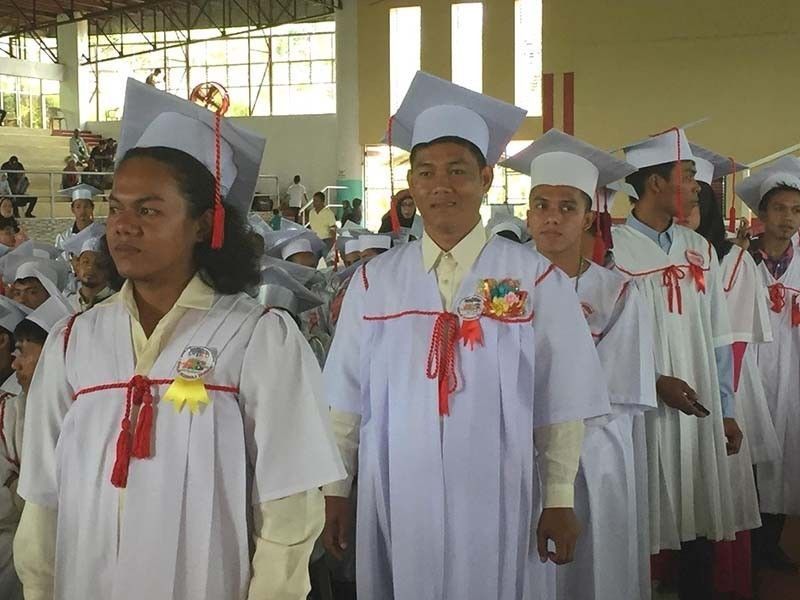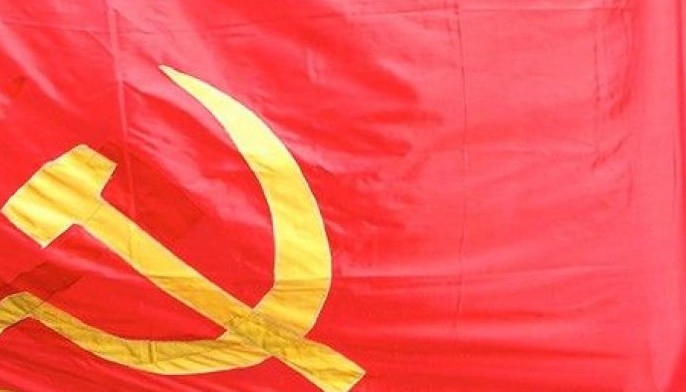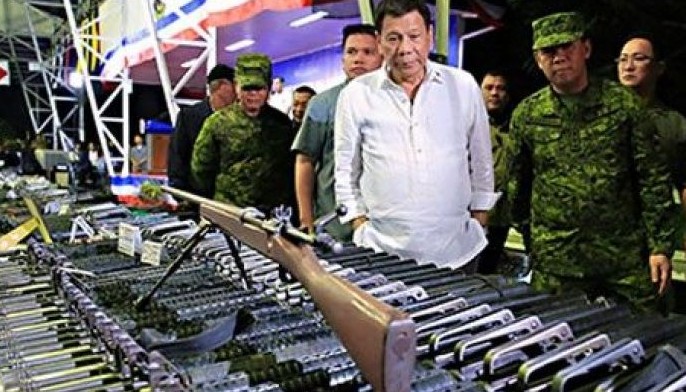Actually, the government acknowledges poverty and injustice fuel conflict

MANILA, Philippines — Senate President Vicente Sotto III may believe otherwise, but addressing social issues like poverty is part of addressing terrorism and the communist insurgency, at least according to government policy.
A GMA News report quotes Sotto as saying that poverty and injustice have nothing to do with people rejecting reforms or the government itself.
"Mali 'yun [na dapat sugpuin ang kahirapan at kawalan katarungan sa paglaban ng terorista]. They want to live in a perfect world. Hindi naman ‘yun ang problema ng terorista eh. Ang problema ng terrorista, ideology," Sotto is quoted as saying in defense of the anti-terrorism bill.
(That is not what the terrorist is concerned about. The terrorist is concerned about ideology.)
"Kahirapan ba ‘yung [dahilan] sa Al-Qaeda, Abu Sayyaf, at mga terrorist organization as declared by the UN Security Council?" he also said.
(Is poverty the reason for Al-Qaeda, Abu Sayyaf and other terrorist organizations as declared by the UN Security Council?)
RELATED: How Maute group came to be
National Security Plan
But even the National Security Plan 2017-2022 acknowledges that ensuring public safety, maintaining law and order and dispensing social justice are among "the most fundamental duties of the state" and would contribute to national security.
Part of the security plan is "reducing poverty and income gaps, creating equal economic opportunities for all, and distributing the fruits of development to the broadest segments of society."
It notes that, since the 1990s — Sotto was first elected senator in 1992 — the government has been giving local government units more power "aimed at addressing the root causes of internal conflicts, namely: poverty and social injustice, widespread economic inequity, poor governance, abuse and control of political power, and marginalization of cultural communities."
The security policy also includes the strategic objective to "pursue policies that would win the hearts and minds of those who have grievances and retain the allegiance of the rest of the citizenry."
The policy also calls for better social safety measures and protection programs for disadvantaged and vulnerable sectors of Philippine society.
'Whole of nation' approach
Executive Order No. 70, which created the National Task Force to End Local Communist Armed Conflict that has been labelling activist organizations and individuals as terrorist sympathizers and fronts, also says that the government "shall prioritize and harmonize the delivery of basic services and social development packages among conflict-affected and -vulnerable communities", among other measures to address the root causes of "insurgencies, internal disturbances and tensions."
The Department of the Interior and Local Government in March said that addressing the root causes of radicalization are part of the National Action Plan on Preventing and Countering Violent Extremism (NAP P/CVE).
Speaking at the "Preventing Violent Extremism through Good Governance and Rule of Law" forum, DILG Undersecretary Jonathan Malaya said the Anti-Terrorism Council found a number of factors behind radicalization that government plans to address including:
- Poor governance, corruption, political injustice and marginalization, and lack of basic services, addressed by the DILG
- Lack of business and livelihood opportunities, to be addressed by the Department of Finance and the National Economic and Development Authority
- Minimal or no infrastructure projects, to be addressed by the Department of Public Works and Highways and NEDA
- Existing presence of terrorist groups, porous borders, massive incidence of violence, addressed by the Department of National Defense
READ: How the DILG plans to prevent, counter violent extremism
According to a Philippine Information Agency write-up on the "Whole of Nation" approach, "the attainment of inclusive and sustainable peace through peace-building initiatives is optimal in this presidential directive."
This approach predates even the National Security Plan and EO 70, with the Office of the Presidential Adviser on the Peace Process implementing its Payapa at Masaganang Pamayanan (Pamana) program since 2011.
Suspended briefly because of corruption allegations, the program resumed in March and has "247 water supply systems, 157 livelihood programs, 111 community infrastructure, 66 rural electrification systems, 34 agricultural support initiatives, 26 capacity-building interventions, and two agri-fishery enterprises to be carried out in remote and conflict-affected areas," according to a report on state-run Philippine News Agency.
According to the OPAPP website, the Pamana program is meant to help address injustice and improve community access to government social services and other "socio-economic interventions."
The program is part of the Philippine Development Plan 2017-2022, which notes that Pamana projects "enhanced the capacity of national government agencies, communities and local government units on good governance to adopt and implement the peace-building agenda."
These projects led to "a heightened sense of belonging and respect for diversity among otherwise polarized individuals, groups, and sectors within and among communities; cooperation and volunteerism; and, increased participation of marginalized and vulnerable groups in peace-building and development activities."
READ: Former Abu Sayyaf members help guard quarantine checkpoints |
Rebel recruitment
Local Government Secretary Eduardo Año, said of the Pamana projects in March, that lack of social services in conflict-affected areas has made it easier for groups like the Communist Party of the Philippines and the New People's Army to recruit people into their ranks.
"For the longest time, communities riddled with issues like poverty, injustice and bad governance were led to believe that government, which should be serving the people, are non-existent, and that progress can only be achieved through armed struggle," Año said then.
He said recruitment strategies by the CPP-NPA-National Democratic Front (NDF) “will soon fray, because now, even far-flung, poverty-stricken and vulnerable areas will have access to basic public services.”
In the same PNA article, Defense Secretary Delfin Lorenzana is quoted as saying: "Local armed conflicts cannot be addressed by military solution alone. Matagal na nating alam ‘yan. Hindi pwedeng bara-bara lang ito (We knew that already. We should do it very carefully)." — Jonathan de Santos
- Latest
- Trending































